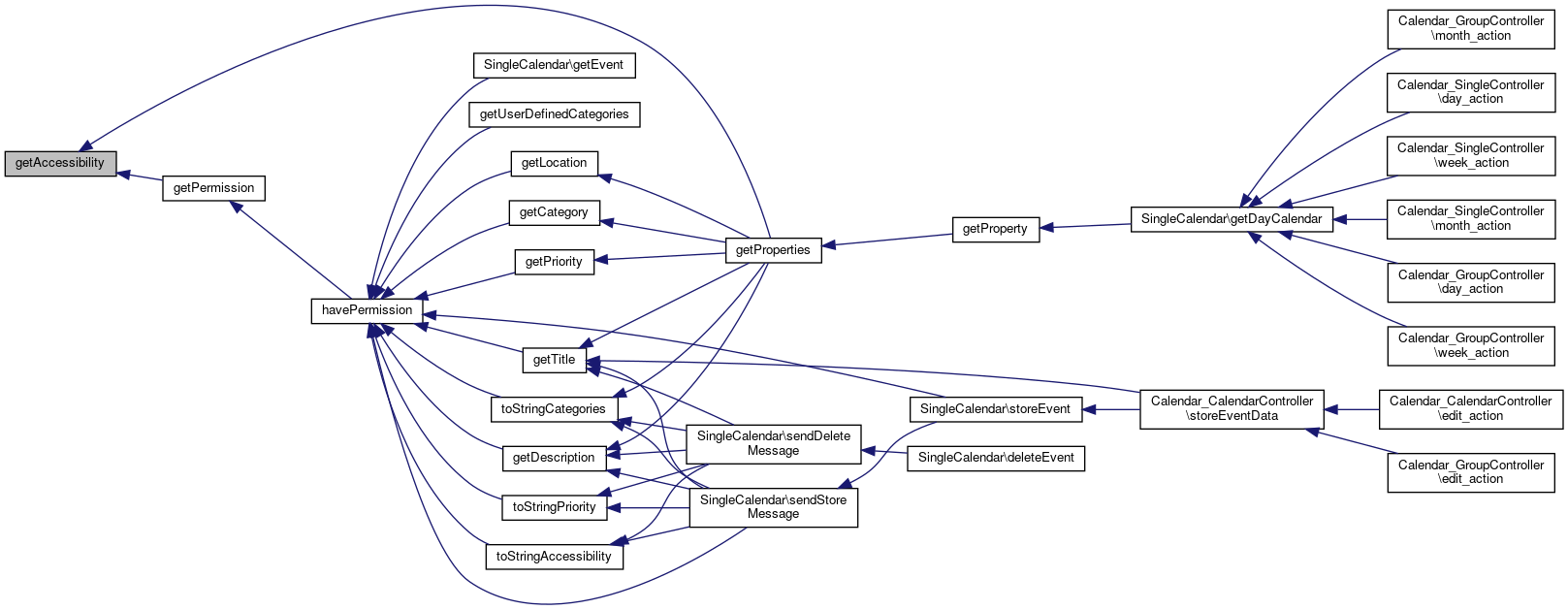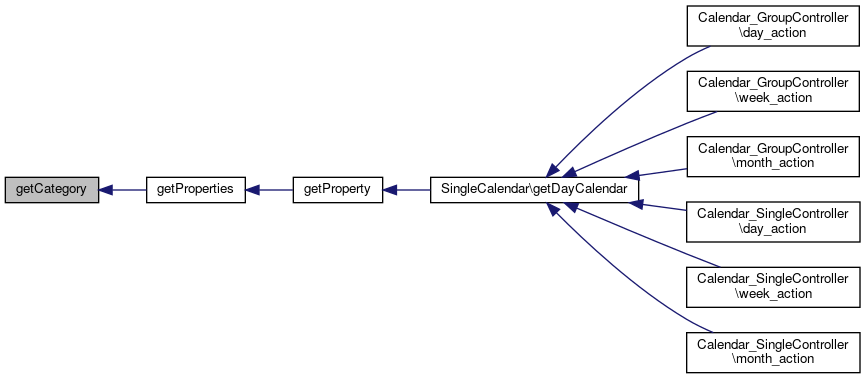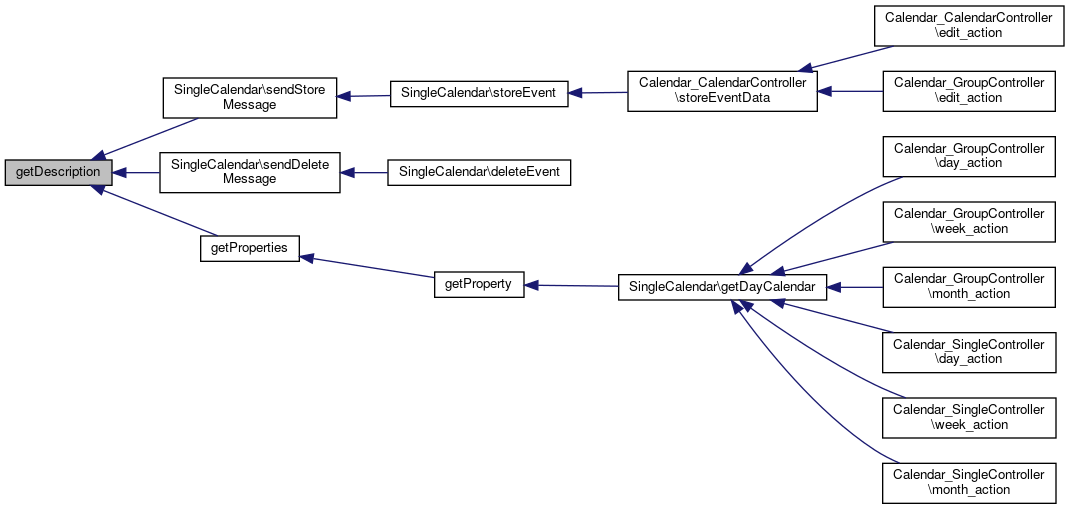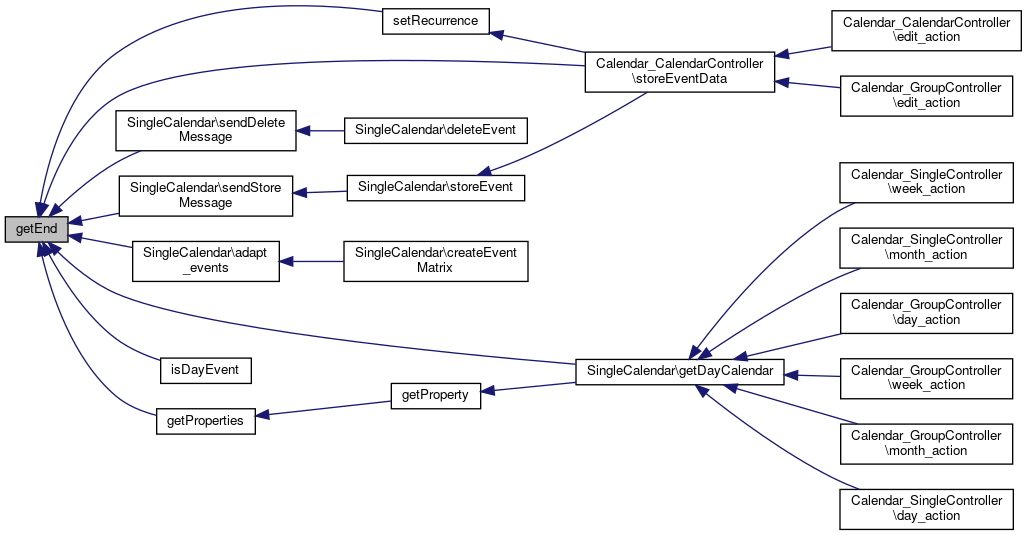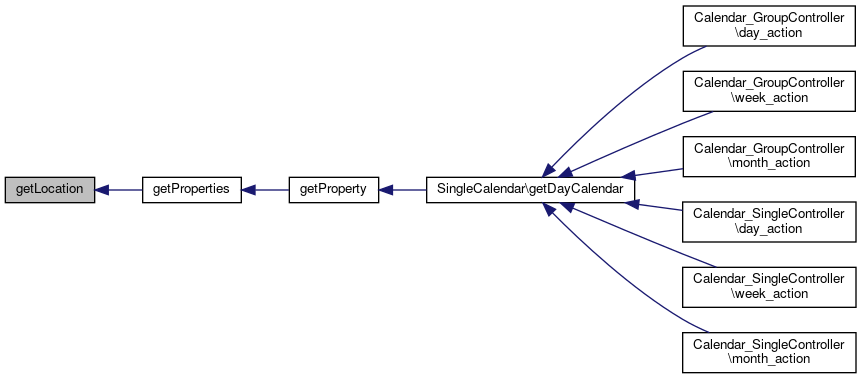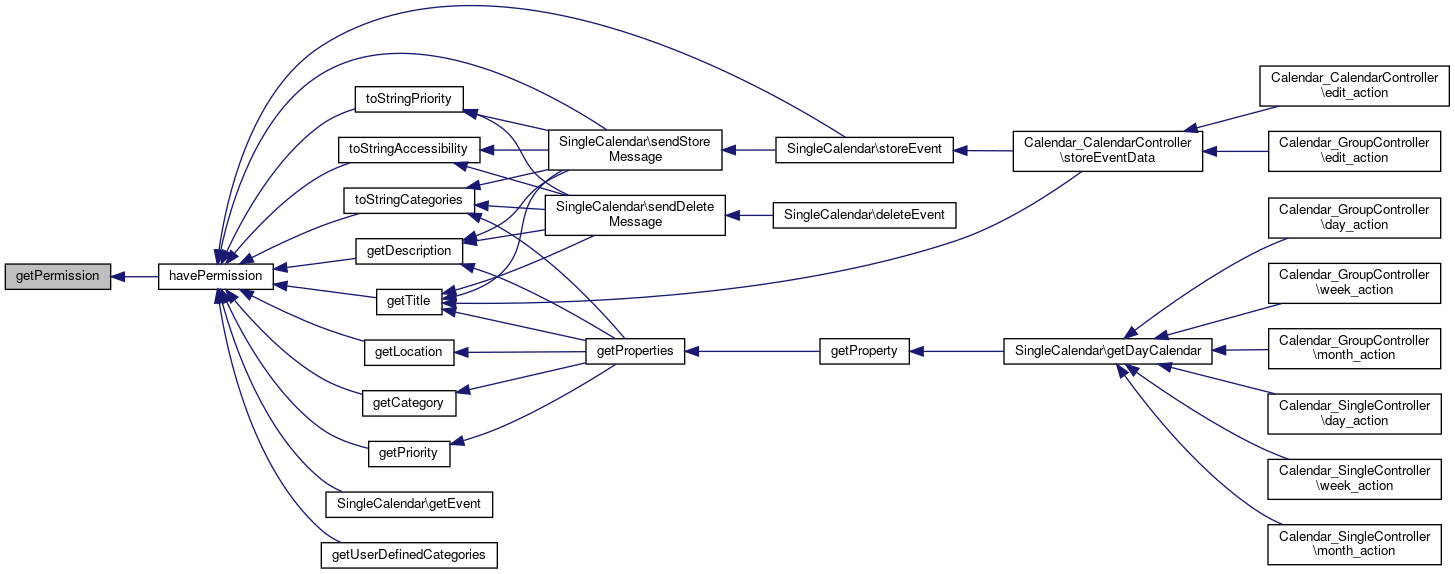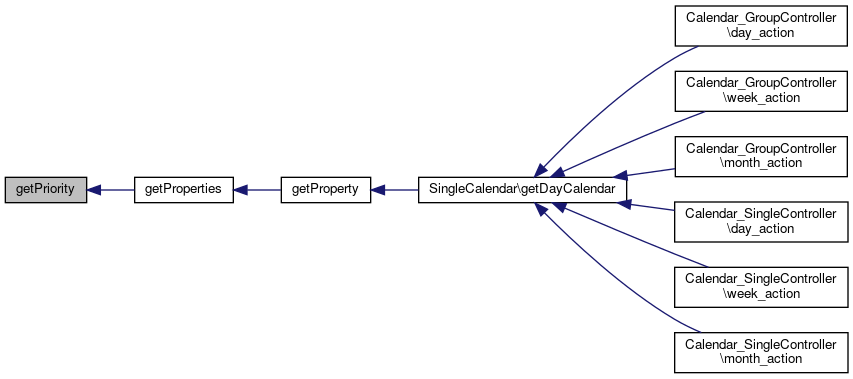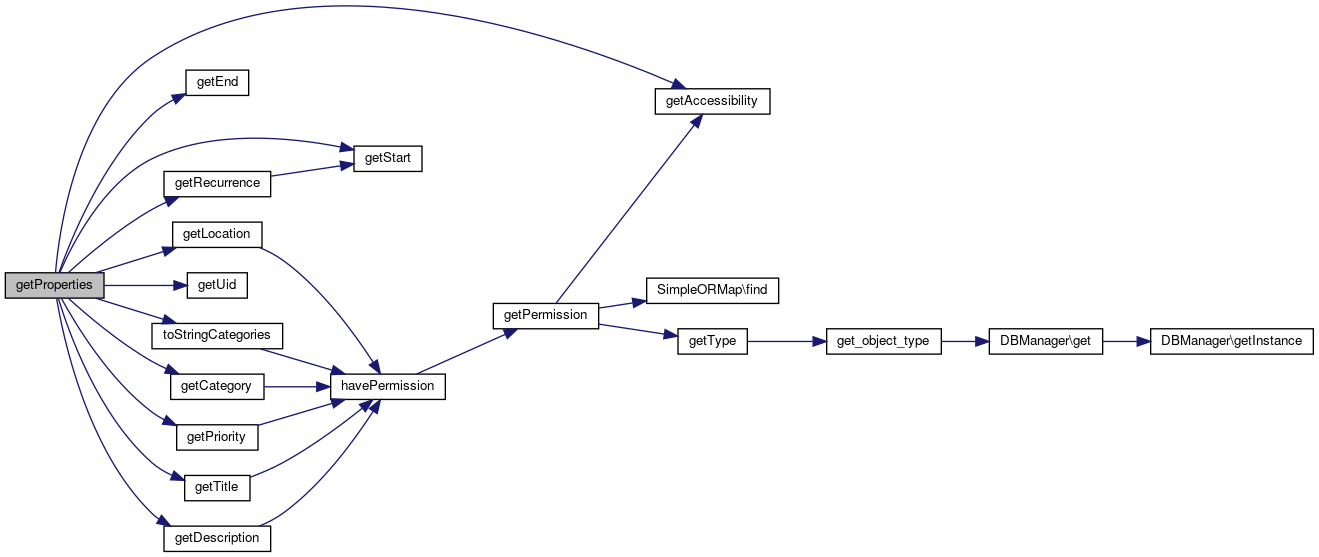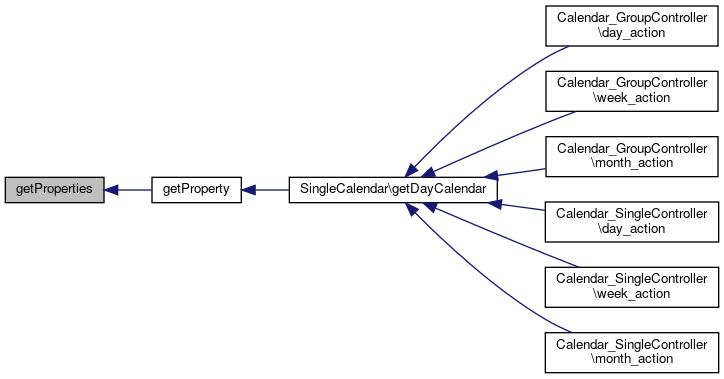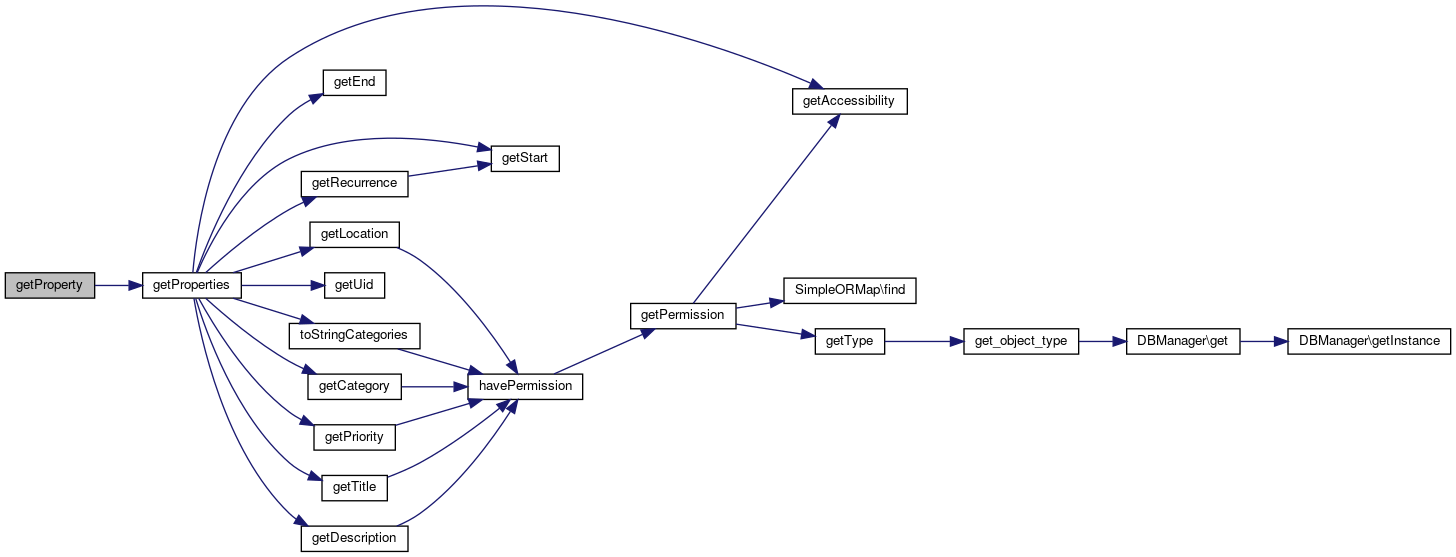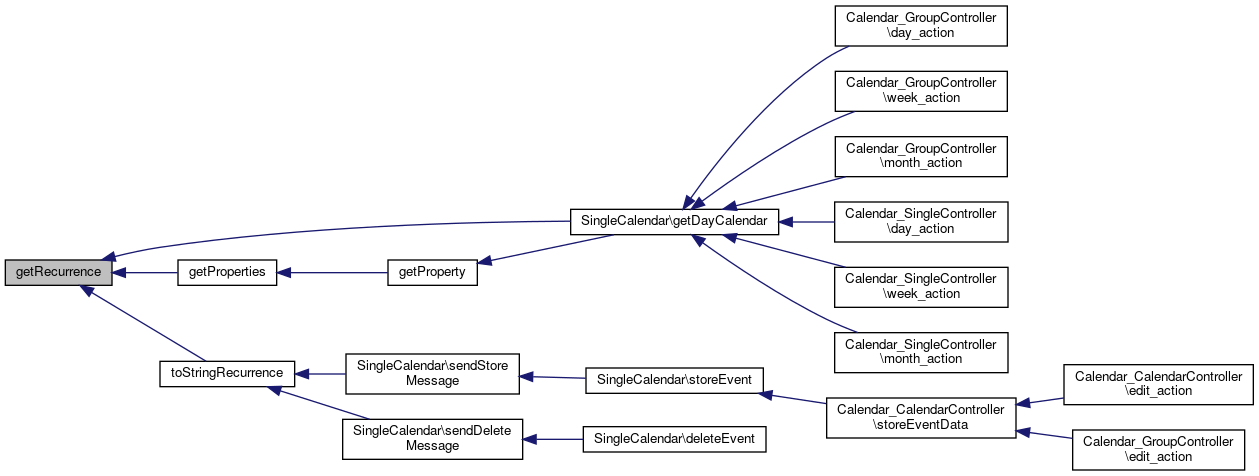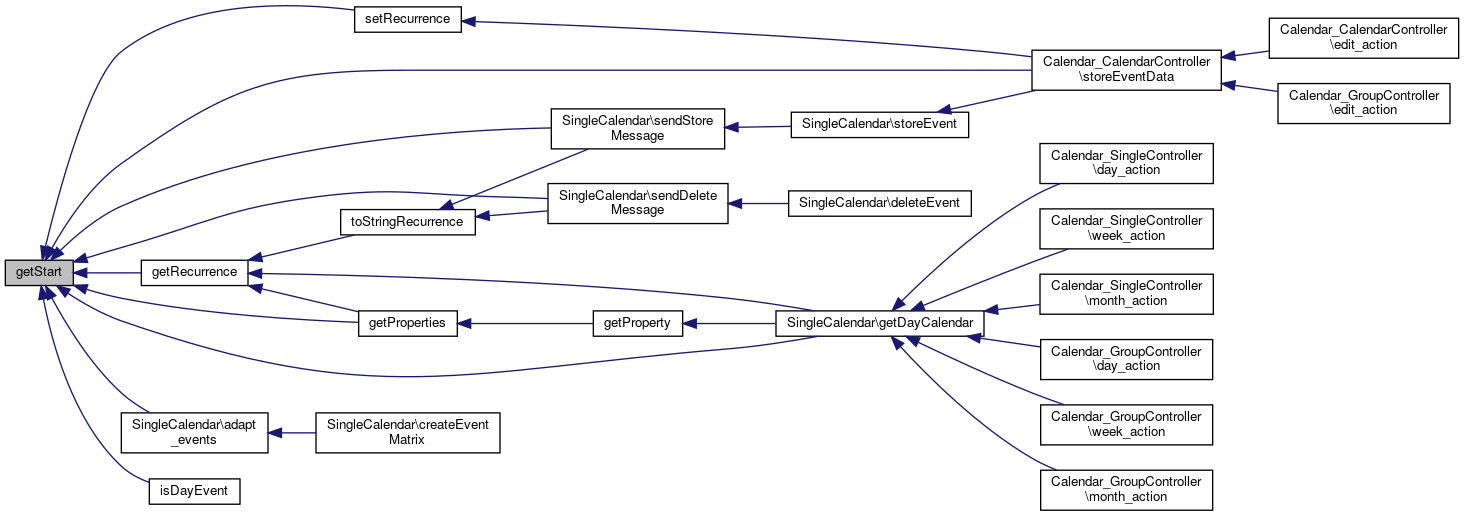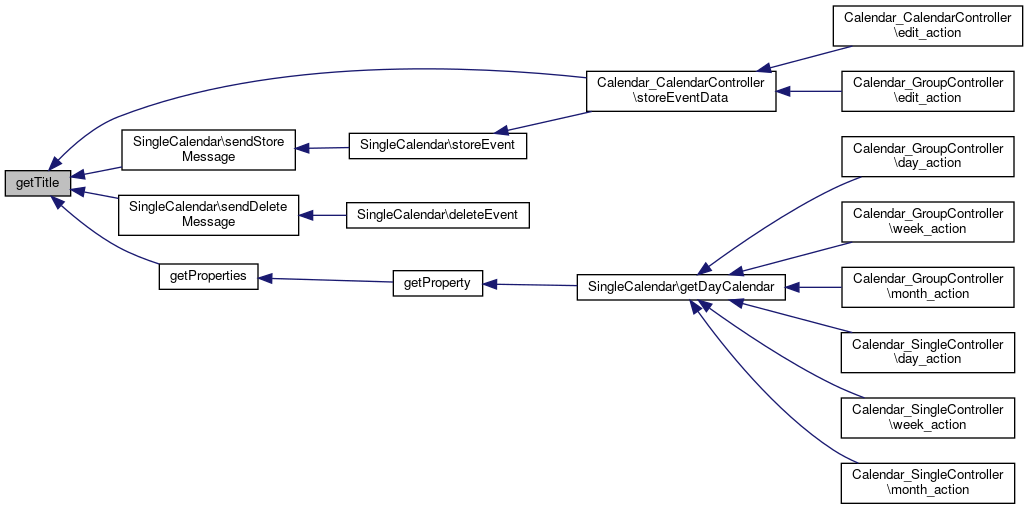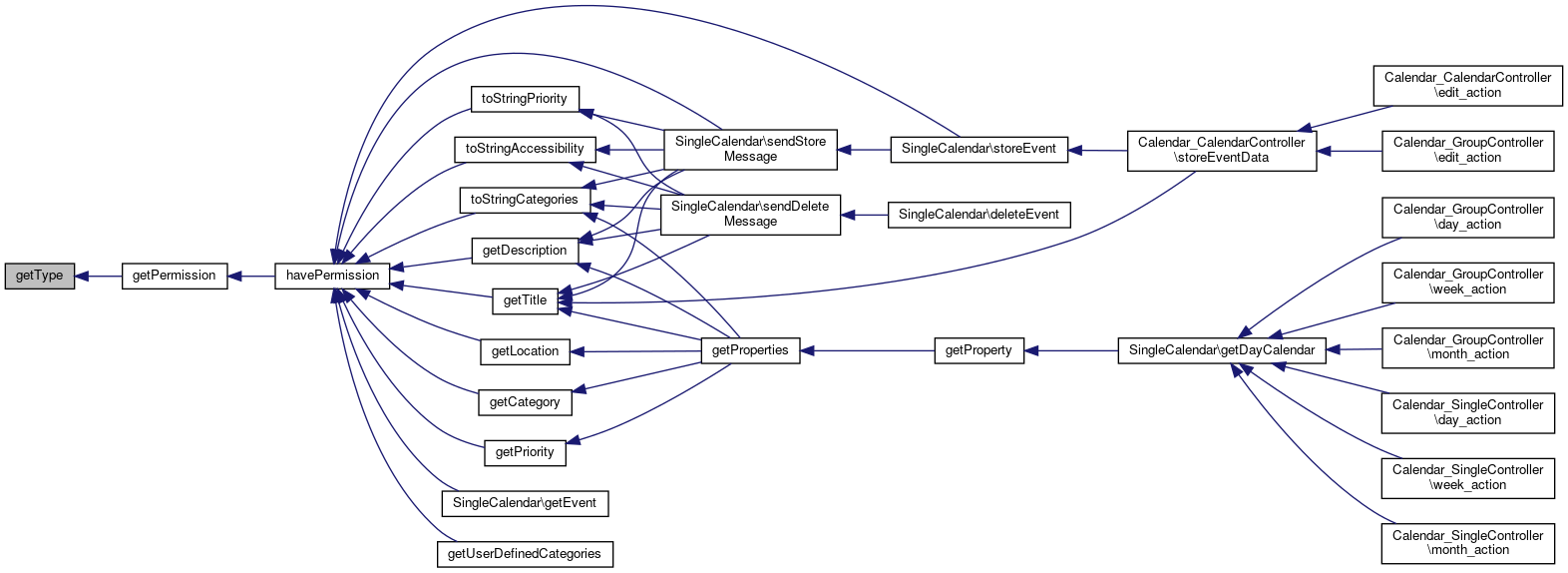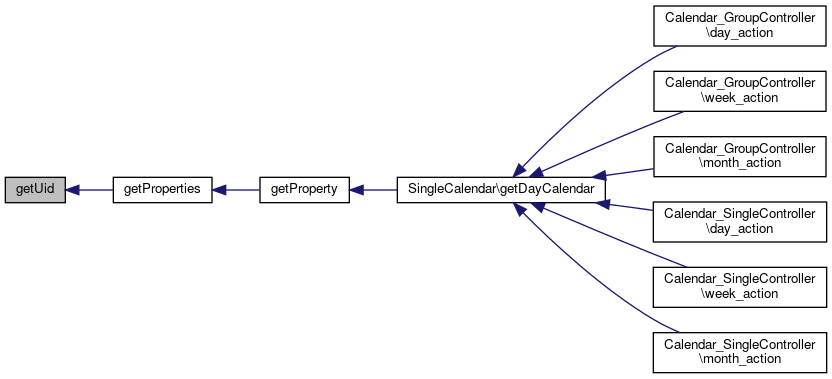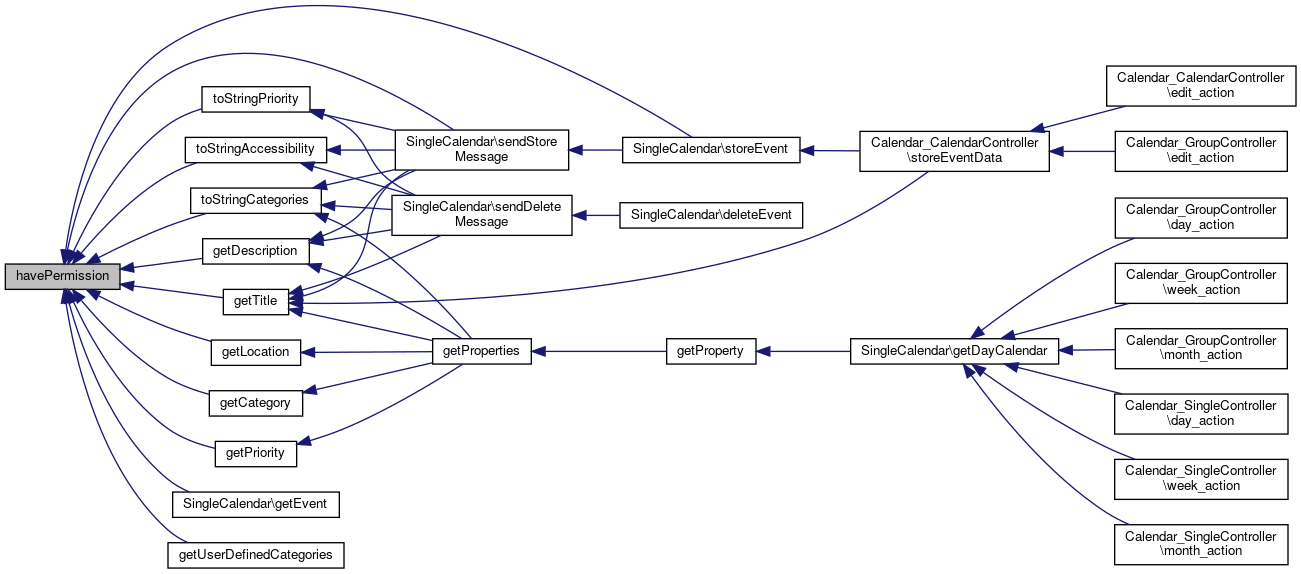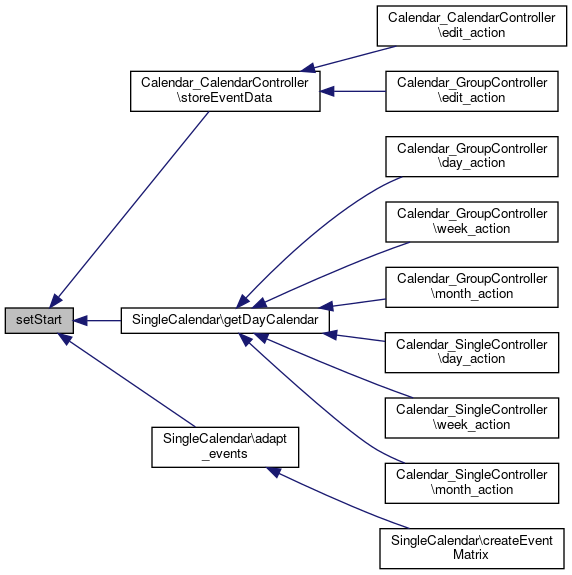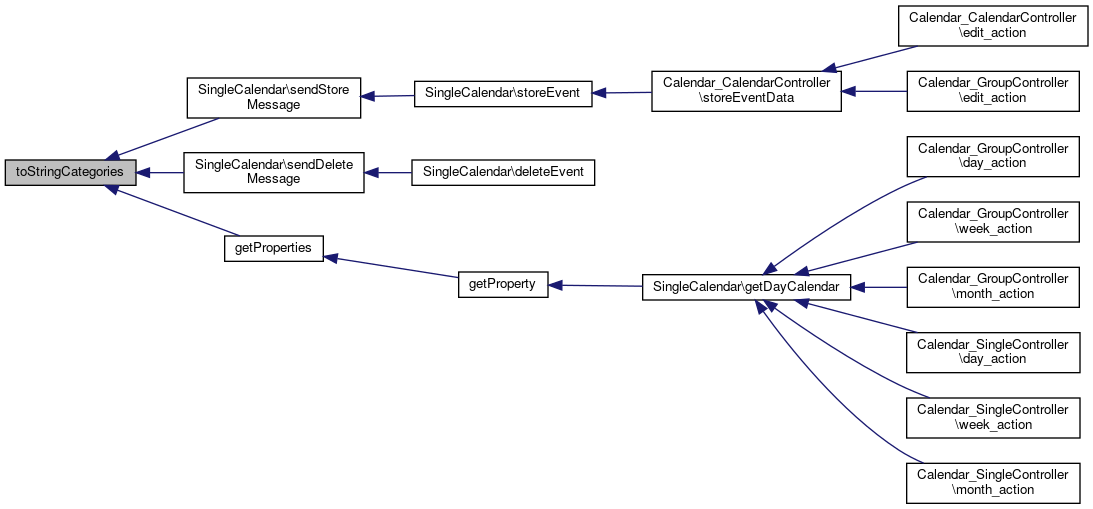|
| static | deleteBySQL ($where, $params=[]) |
| |
| static | findByUid ($uid, $range_id=null) |
| |
| static | getEventsByInterval ($range_id, DateTime $start, DateTime $end) |
| |
| static | exportUserData (StoredUserData $storage) |
| |
| static | tableScheme ($db_table) |
| |
| static | expireTableScheme () |
| |
| static | find ($id) |
| |
| static | exists ($id) |
| |
| static | countBySql ($sql=1, $params=[]) |
| |
| static | create ($data) |
| |
| static | build ($data, $is_new=true) |
| |
| static | buildExisting ($data) |
| |
| static | import ($data) |
| |
| static | findBySQL ($sql, $params=[]) |
| |
| static | findOneBySQL ($where, $params=[]) |
| |
| static | findThru ($foreign_key_value, $options) |
| |
| static | findEachBySQL ($callable, $sql, $params=[]) |
| |
| static | findMany ($pks=[], $order='', $order_params=[]) |
| |
| static | findEachMany ($callable, $pks=[], $order='', $order_params=[]) |
| |
| static | findAndMapBySQL ($callable, $where, $params=[]) |
| |
| static | findAndMapMany ($callable, $pks=[], $order='', $order_params=[]) |
| |
| static | deleteBySQL ($where, $params=[]) |
| |
| static | toObject ($id_or_object) |
| |
| static | __callStatic ($name, $arguments) |
| |
|
| static | $schemes = null |
| |
| | _getId ($field) |
| |
| | _setId ($field, $value) |
| |
| | _getAdditionalValueFromRelation ($field) |
| |
| | _setAdditionalValueFromRelation ($field, $value) |
| |
| | _getAdditionalValue ($field) |
| |
| | _setAdditionalValue ($field, $value) |
| |
| | parseRelationOptions ($type, $name, $options) |
| |
| | storeRelations ($only_these=null) |
| |
| | deleteRelations () |
| |
| | initializeContent () |
| |
| | applyCallbacks ($type) |
| |
| | registerCallback ($types, $cb) |
| |
| | unregisterCallback ($types, $cb) |
| |
| | cbAutoIncrementColumn ($type) |
| |
| | cbAutoKeyCreation () |
| |
| | cbNotificationMapper ($cb_type) |
| |
| | cbAfterInitialize ($cb_type) |
| |
| | setSerializedValue ($field, $value) |
| |
| | setI18nValue ($field, $value) |
| |
| | cbI18N ($type) |
| |
| | $content = [] |
| |
| | $content_db = [] |
| |
| | $is_new = true |
| |
| | $is_deleted = false |
| |
| | $db_table = '' |
| |
| | $db_fields = null |
| |
| | $pk = null |
| |
| | $default_values = [] |
| |
| | $serialized_fields = [] |
| |
| | $alias_fields = [] |
| |
| | $i18n_fields = [] |
| |
| | $additional_fields = [] |
| |
| | $relations = [] |
| |
| | $has_many = [] |
| |
| | $has_one = [] |
| |
| | $belongs_to = [] |
| |
| | $has_and_belongs_to_many = [] |
| |
| | $registered_callbacks = [] |
| |
| | $known_slots = [] |
| |
| | $notification_map = [] |
| |
| | $additional_data = [] |
| |
| | $getter_setter_map = [] |
| |
| static | $config = [] |
| |
| static | $reserved_slots = ['value','newid','iterator','tablemetadata', 'relationvalue','wherequery','relationoptions','data','new','id'] |
| |
◆ __clone()
◆ configure()
| static configure |
( |
|
$config = [] | ) |
|
|
staticprotected |
set configuration data from subclass
- Parameters
-
| array | $config | configuration data |
- Returns
- void
Reimplemented from SimpleORMap.
◆ deleteBySQL()
| static deleteBySQL |
( |
|
$where, |
|
|
|
$params = [] |
|
) |
| |
|
static |
deletes objects specified by sql clause
- Parameters
-
| string | $where | sql clause to use on the right side of WHERE |
| array | $params | parameters for query |
- Returns
- number
Reimplemented from SimpleORMap.
◆ exportUserData()
| static exportUserData |
( |
StoredUserData |
$storage | ) |
|
|
static |
Export available data of a given user into a storage object (an instance of the StoredUserData class) for that user.
- Parameters
-
| StoredUserData | $storage | object to store data into |
◆ findByUid()
| static findByUid |
( |
|
$uid, |
|
|
|
$range_id = null |
|
) |
| |
|
static |
Finds calendar events by the uid of the event data.
- Parameters
-
| string | $uid | The global unique id of this event. |
- Returns
- null|CalendarEvent The calendar event, an array of calendar events or null.
◆ getAccessibility()
Returns the state of accessibility as string. Possible values: PUBLIC, PRIVATE, CONFIDENTIAL The default is CONFIDENTIAL.
- Returns
- string
◆ getAccessibilityOptions()
| getAccessibilityOptions |
( |
|
$permission | ) |
|
Returns an array with options for accessibility depending on the permission of the given calendar permission.
- Parameters
-
| int | $permission | The calendar permission |
- Returns
- array The accessibility options.
◆ getAuthor()
Returns the user id of the event's author.
- Returns
- string The user id of the author.
◆ getAuthorId()
Returns the user id of the author.
- Returns
- string User id of the author.
◆ getCategory()
Returns the index of the category. If the user has no permission, 255 is returned.
- See also
- config/config.inc.php $TERMIN_TYP
- Returns
- int The index of the category
◆ getChangeDate()
◆ getDescription()
Returns the description of the topic. If the user has no permission or the event has no topic or the topics have no descritopn an empty string is returned.
- Returns
- String the description
◆ getDuration()
Returns the duration of this event in seconds.
- Returns
- int the duration of this event in seconds
◆ getEditor()
Returns teh user id of the event's last editor.
- Returns
- string The uder id og the editor.
◆ getEditorId()
Returns the user id of the editor.
- Returns
- string User id of the editor
◆ getEnd()
Returns the endtime as unix timestamp of this event.
- Returns
- int the endtime of this event as a unix timestamp
◆ getEventsByInterval()
| static getEventsByInterval |
( |
|
$range_id, |
|
|
DateTime |
$start, |
|
|
DateTime |
$end |
|
) |
| |
|
static |
Returns all CalendarEvents in the given time range for the given range_id.
- Parameters
-
| string | $range_id | Id of Stud.IP object from type user, course, inst |
| DateTime | $start | The start date time. |
| DateTime | $end | The end date time. |
- Returns
- SimpleORMapCollection Collection of found CalendarEvents.
◆ getExceptions()
Returns the exceptions as array of unix timestamps.
- Returns
- array Array of unix timestamps.
◆ getImportDate()
◆ getLocation()
Returns the location. Without permission or the location is not set an empty string is returned.
- Returns
- string The location
◆ getName()
TODO remove! not used?
- Returns
- type
◆ getOwner()
◆ getPermission()
| getPermission |
( |
|
$user_id = null | ) |
|
Returns the permission of the given user or the user set by CalendarEvent::setPermssionUser previously.
@staticvar array $permissions
- Parameters
-
| string | $user_id | The user's id. |
- Returns
- int The permission.
◆ getPriority()
Returns the priority: 0 means priority is not stated 1 means "high" 2 means "middle" 3 means "low" If the user has no permission it returns 0.
- Returns
- int The priority.
◆ getProperties()
Returns all properties of this event. The name of the properties correspond to the properties of the iCalendar calendar data exchange format. There are a few properties with the suffix STUDIP_ which have no eqivalent in the iCalendar format.
DTSTART: The start date-time as unix timestamp. DTEND: The end date-time as unix timestamp. SUMMARY: The short description (title) that will be displayed in the views. DESCRIPTION: The long description. UID: The global unique id of this event. CLASS: CATEGORIES: A comma separated list of categories. PRIORITY: The priority. LOCATION: The location. EXDATE: A comma separated list of unix timestamps. CREATED: The creation date-time as unix timestamp. LAST-MODIFIED: The date-time of last modification as unix timestamp. DTSTAMP: The cration date-time of this instance of the event as unix timestamp. RRULE: All data for the recurrence rule for this event as array. EVENT_TYPE:
- Returns
- array The properties of this event.
◆ getProperty()
Returns the value of property with given name.
- Parameters
-
- Returns
- mixed The value of the property.
- Exceptions
-
◆ getRecurrence()
| getRecurrence |
( |
|
$index = null | ) |
|
Returns all values that defines a recurrence rule or a single value named by $index.
- Parameters
-
| string | $index | Name of the value to retrieve (optional). |
- Returns
- string|array The value(s) of the recurrence rule.
- Exceptions
-
◆ getStart()
Returns the starttime as unix timestamp of this event.
- Returns
- int The starttime of this event as a unix timestamp
◆ getTitle()
Returns the title of this event. If the user has not the permission Event::PERMISSION_READABLE, the title is "Keine Berechtigung.".
- Returns
- string
◆ getType()
Returns the object type this event belongs to. Possible values are 'user', 'sem', 'inst', 'fak'.
- Returns
- string The object type.
◆ getUid()
Returns the global unique id of this event.
- Returns
- string The global unique id.
◆ getUserDefinedCategories()
| getUserDefinedCategories |
( |
| ) |
|
Returns a csv list of categories. If no categories are stated or the user has no permission an empty string will be returned.
- Returns
- string csv list of categories or empty string
◆ havePermission()
| havePermission |
( |
|
$permission, |
|
|
|
$user_id = null |
|
) |
| |
Checks the permission of the user previously set with CalendarEvent::setPermissisonUser or given by second argument. Returns true if the user have the at least the given permission.
- Parameters
-
| int | $permission | |
| string | $user_id | |
- Returns
- boolean
◆ isDayEvent()
Returns whether this event is an all day event.
- Returns
- boolean true if all day event
◆ setAccessibility()
| setAccessibility |
( |
|
$class | ) |
|
Sets the accessibility (class). Possible classes are 'PUBLIC', 'PRIVATE' and 'CONFIDENTIAL'. If the given class is unknown, the event gets the class 'PRIVATE'.
- Parameters
-
| string | $class | The name of the class. |
◆ setAuthorId()
| setAuthorId |
( |
|
$author_id | ) |
|
Sets the author by given user id.
- Parameters
-
| string | $author_id | User id of the author. |
◆ setEditorId()
| setEditorId |
( |
|
$editor_id | ) |
|
Sets the editor id by given user id.
- Parameters
-
| string | $editor_id | User id of the editor. |
◆ setEnd()
Sets the end date time by given unix timestamp.
- Parameters
-
| string | $timestamp | Unix timestamp. |
◆ setExceptions()
| setExceptions |
( |
|
$exceptions | ) |
|
Sets proper timestamps as exceptions for given unix timestamps.
- Parameters
-
| array | $exceptions | Array of exceptions as unix timestamps. |
◆ setPermissionUser()
| setPermissionUser |
( |
|
$user_id | ) |
|
Sets the user_id to check his permission.
- Parameters
-
| string | $user_id | The id of the user. |
◆ setPriority()
Sets the priority. Possible values are 0: not specified 1: high 2: middle 3: low Default is 0.
- Parameters
-
| int | $priority | The priority between 0 and 3. |
◆ setRecurrence()
TODO should throw an exception if input values are wrong
- Parameters
-
- Returns
- array The values of the recurrence rule.
◆ setStart()
Sets the start date time with given unix timestamp.
- Parameters
-
| string | $timestamp | Unix timestamp. |
◆ setTitle()
Sets the title of this event.
- Parameters
-
| type | $title | The title of this event. |
◆ setUserDefinedCategories()
| setUserDefinedCategories |
( |
|
$categories | ) |
|
Stores user defined categories as a csv list.
- Parameters
-
| array | string | $categories | An array or csv list of user defined categories. |
◆ toStringAccessibility()
| toStringAccessibility |
( |
| ) |
|
Returns the accessibilty in a human readable form. If the user has no permission an epmty string will be returned.
- Returns
- string The accessibility as string.
◆ toStringCategories()
| toStringCategories |
( |
|
$as_array = false | ) |
|
Returns a list of all categories the event belongs to. Returns an empty string if no permission.
- Returns
- string All categories as list.
◆ toStringGroupStatus()
| toStringGroupStatus |
( |
|
$status = null | ) |
|
Returns the name of the group status. Returns an empty string status is unknown.
- Returns
- string All categories as list.
◆ toStringPriority()
Returns the priority in a human readable form. If the user has no permission an epmty string will be returned.
- Returns
- string The priority as a string.
◆ toStringRecurrence()
| toStringRecurrence |
( |
|
$only_type = false | ) |
|
Returns a string representation of the recurrence rule. If $only_type is true returns only the type of the recurrence.
- Parameters
-
| bool | $only_type | If true returns only the type of recurrence. |
- Returns
- string The recurrence rule - human readable
◆ PARTSTAT_ACCEPTED
| const PARTSTAT_ACCEPTED = 2 |
◆ PARTSTAT_DECLINED
| const PARTSTAT_DECLINED = 3 |
◆ PARTSTAT_DELEGATED
| const PARTSTAT_DELEGATED = 4 |
◆ PARTSTAT_NEEDS_ACTION
| const PARTSTAT_NEEDS_ACTION = 5 |
◆ PARTSTAT_TENTATIVE
| const PARTSTAT_TENTATIVE = 1 |
The documentation for this class was generated from the following file:
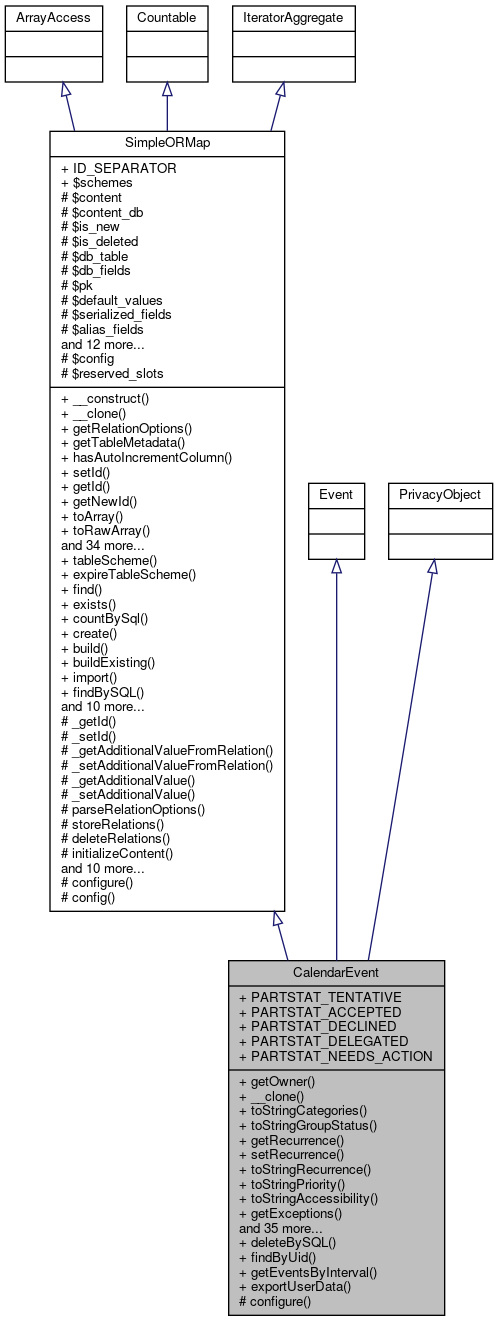
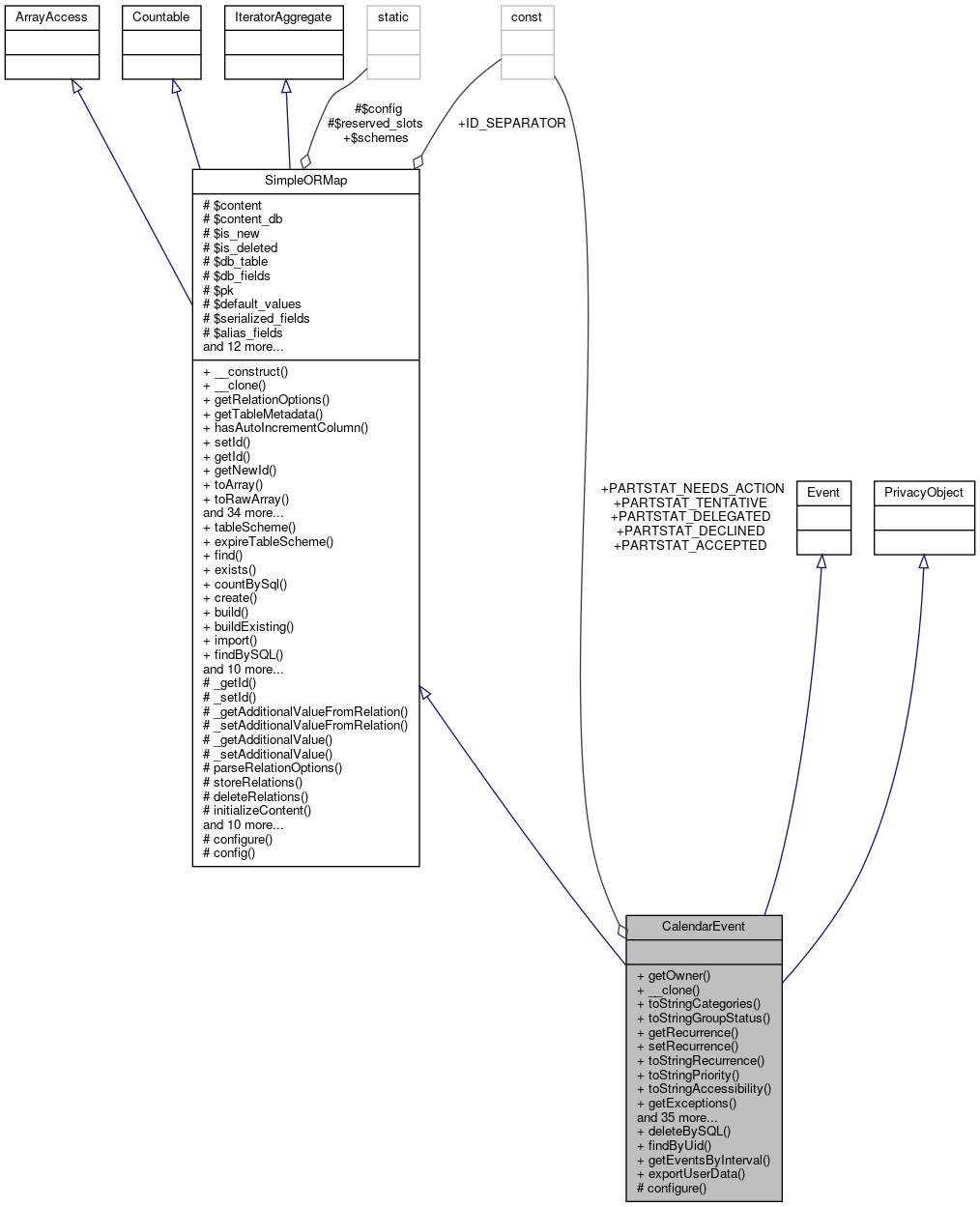
 Static Public Member Functions inherited from SimpleORMap
Static Public Member Functions inherited from SimpleORMap Data Fields inherited from SimpleORMap
Data Fields inherited from SimpleORMap Static Protected Member Functions inherited from SimpleORMap
Static Protected Member Functions inherited from SimpleORMap



